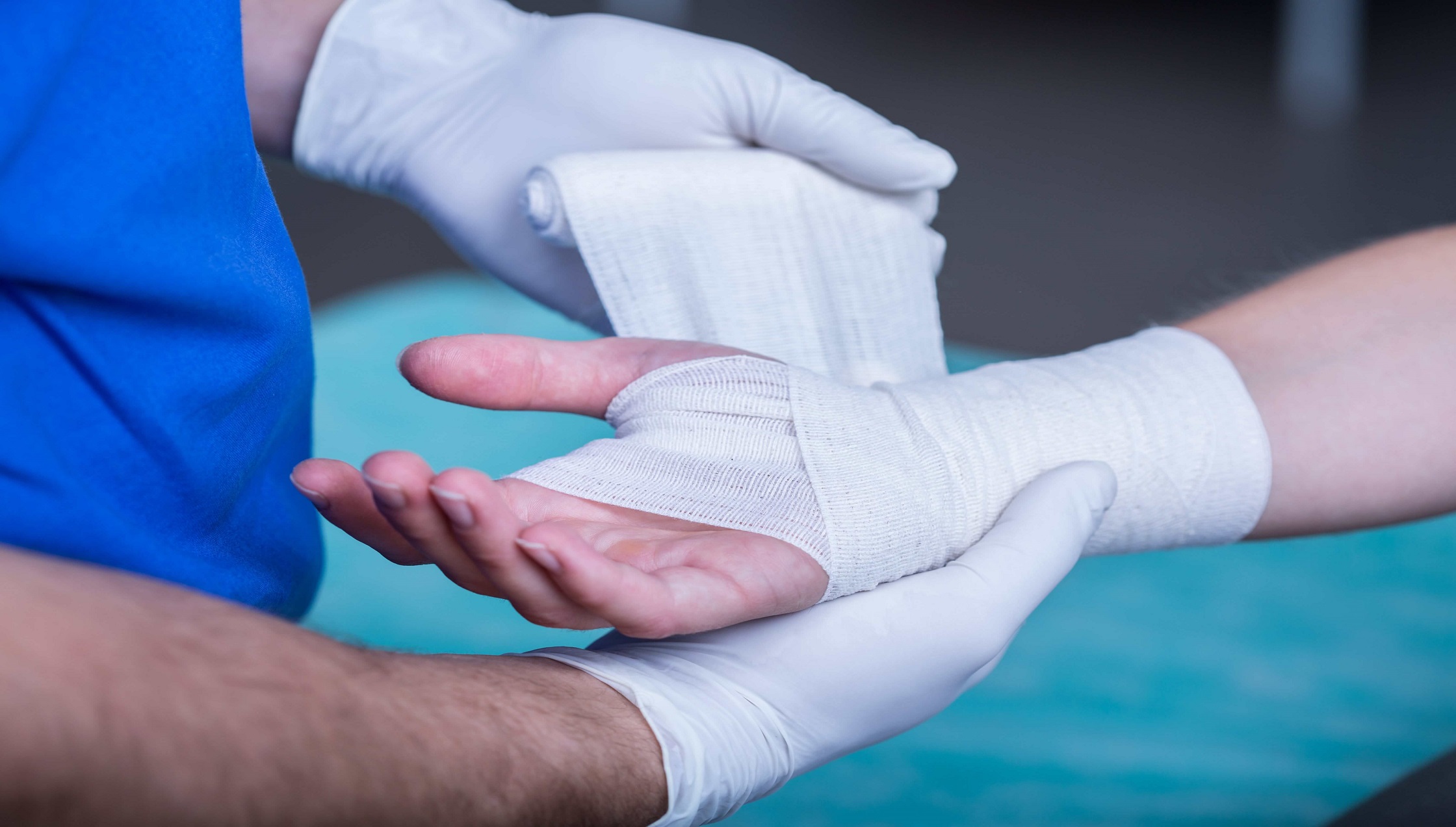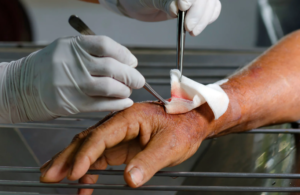Understanding the Role of a Wound Doctor Specialist
A Wound Doctor Specialist is a medical professional trained in the diagnosis and treatment of both acute and chronic wounds. These specialists often come from backgrounds in surgery, dermatology, or internal medicine and undergo advanced training in wound care techniques. Unlike general physicians who treat a wide range of conditions, wound care specialists focus exclusively on healing complex wounds and preventing complications. They understand the nuances of tissue repair, infection control, and proper wound dressing techniques. In clinical settings, they are often part of a multidisciplinary team that may include nurses, physical therapists, and nutritionists. Their expertise is especially vital for patients with conditions that impair natural healing, such as diabetes, vascular disease, or compromised immune systems. This focused care helps ensure that patients receive the most effective treatments to promote recovery and avoid further health issues.
Types of Wounds Treated by a Wound Doctor Specialist
A wide variety of wounds require the attention of a Wound Doctor Specialist. Chronic wounds like diabetic foot ulcers, pressure sores (bedsores), and venous leg ulcers are among the most common cases. These wounds often persist for weeks or months and resist standard treatments. Surgical wounds that are slow to heal or have become infected also fall under their expertise. Additionally, wound care specialists address traumatic injuries resulting from accidents, such as cuts, lacerations, or puncture wounds. Burns, whether thermal, electrical, or chemical, may require specialized wound management to prevent scarring and promote optimal healing. Radiation-induced skin injuries, often seen in cancer patients, also benefit from specialized wound care strategies. Their ability to handle such a diverse range of wound types allows for customized care tailored to each patient’s unique condition.
Key Treatments and Techniques Used by Wound Doctor Specialists
Wound Doctor Specialists employ a range of advanced treatments and tools to support effective healing. One of the foundational methods is debridement, which involves removing dead or infected tissue to facilitate new tissue growth. They also utilize specialized wound dressings that maintain the right moisture balance, promoting healing while reducing the risk of infection. Negative Pressure Wound Therapy (NPWT), a method that uses vacuum suction to remove excess fluid and improve blood flow, is another highly effective approach. Hyperbaric Oxygen Therapy (HBOT) may be used to enhance oxygen delivery to damaged tissues, accelerating recovery for certain types of chronic wounds. Skin grafts or the use of biological skin substitutes may be necessary in severe or non-healing wounds. Pain management and patient education are also part of the treatment plan, ensuring comfort and long-term results. These modern techniques enable wound specialists to treat even the most stubborn cases with precision and care.
Signs You Should Visit a Wound Doctor Specialist
Recognizing when to consult a Wound Doctor Specialist can significantly improve your health outcomes. A wound that hasn’t shown signs of healing after two to four weeks should be evaluated by a specialist. Other warning signs include increasing redness, swelling, or pus, which can indicate infection. Persistent pain, a foul odor, or a darkened area around the wound are also red flags. People with chronic health issues like diabetes or poor circulation are especially vulnerable and should not delay seeking expert care. Recurrent wounds in the same area may suggest an underlying issue that needs specialized attention. Patients who recently underwent surgery and are experiencing complications such as open incisions or tissue separation can also benefit from wound care expertise. Seeking timely intervention helps reduce the risk of complications like sepsis, limb loss, or extended hospital stays.
The Healing Process and Follow-Up Care
Healing under the supervision of a Wound Doctor Specialist is a carefully monitored and structured process. During initial visits, the specialist will assess the wound’s severity, evaluate underlying conditions, and recommend a customized treatment plan. Ongoing care often includes regular wound evaluations, dressing changes, and adjustments to the treatment strategy based on progress. The specialist may work with a team of healthcare providers, including dietitians, physical therapists, and infection control experts, to address factors that impact healing. Patient compliance with home care instructions is critical, including how to clean and dress the wound properly. Nutrition and hydration also play an essential role, as poor dietary habits can delay tissue repair. The specialist educates patients about early warning signs of complications to ensure prompt responses. Follow-up appointments help track improvement and make necessary changes to enhance recovery.
Benefits of Specialized Wound Care Over General Treatment
Receiving care from a Wound Doctor Specialist offers several important advantages. These professionals bring targeted knowledge and tools that lead to faster healing compared to general care. Their ability to reduce the risk of serious complications like infections or amputations is especially crucial for patients with diabetes. Through personalized treatment plans, they address the specific type of wound, underlying health conditions, and patient lifestyle. Pain management techniques are more refined, making the healing process more comfortable and less stressful. Education and counseling provided by specialists help patients avoid recurrence through better self-care practices. Long-term outcomes also improve when wounds are treated correctly the first time, reducing the need for repeat visits or hospital stays. By focusing solely on wound care, these specialists are equipped to deliver high-quality, effective solutions.
Choosing the Right Wound Doctor Specialist
Selecting a qualified Wound Doctor Specialist requires thoughtful consideration. Credentials are key, so look for board certification in wound management or specialized training in wound care. Years of experience and familiarity with the type of wound you have can make a significant difference in treatment success. Ask about their approach to care—do they work with a multidisciplinary team, and what treatment modalities do they offer? Patient reviews and recommendations from primary care doctors or other specialists can also guide your choice. Make sure the clinic or hospital has access to advanced technologies and a clean, well-equipped facility. Communication is critical, so find a provider who listens and explains things clearly. Your comfort with the specialist and their team can have a meaningful impact on your treatment experience.
What to Expect During Your First Appointment
Your first visit to a Wound Doctor Specialist is typically thorough and informative. The appointment begins with a full review of your medical history, including medications and any chronic conditions. A detailed wound assessment follows, which may include measurements, photographs, and diagnostic imaging to determine the wound’s depth and tissue involvement. The specialist may order blood work or vascular studies to check for conditions affecting healing. You’ll receive education about the type of wound you have, factors influencing recovery, and how your daily habits can support healing. Based on these findings, the specialist will develop a treatment plan that may include therapies, dressing changes, or even surgical procedures if needed. You’ll be given detailed care instructions and a schedule for follow-up visits. This comprehensive approach ensures no detail is overlooked.
Costs, Insurance Coverage, and Accessibility
Specialized wound care services can vary in cost depending on the type of treatment, clinic location, and duration of care. Fortunately, many insurance plans, including Medicare and Medicaid, cover consultations and treatments provided by a Wound Doctor Specialist when deemed medically necessary. Some clinics offer payment plans or financial assistance for uninsured patients. Community health centers and nonprofit organizations may also provide support or referrals. Accessibility is improving with the rise of wound care centers located within hospitals and outpatient facilities. Telemedicine is becoming a useful option for follow-up care and consultations, especially in rural areas. Always confirm insurance acceptance and estimated out-of-pocket costs before beginning treatment. Being informed about your options ensures you can access the care you need without unnecessary financial strain.
Preventative Strategies Advised by Wound Doctor Specialists
Prevention is a cornerstone of effective wound care. Wound Doctor Specialists often provide guidance to help patients avoid future complications. For people with diabetes, foot inspections, proper footwear, and routine monitoring are critical steps. Maintaining healthy skin through regular moisturizing and avoiding prolonged pressure on vulnerable areas can prevent pressure ulcers. Proper wound cleaning techniques at home, including the use of sterile supplies, help reduce infection risk. Nutrition is emphasized, with recommendations to increase protein, vitamin C, and zinc intake to support tissue regeneration. Staying hydrated, managing blood sugar levels, and quitting smoking are also common pieces of advice. For patients with limited mobility, physical therapists may recommend exercises or repositioning techniques to improve circulation. These proactive measures are essential for reducing hospital visits and maintaining quality of life.
FAQ – Common Questions About Wound Doctor Specialists
Q1: Do I need a referral to see a wound doctor specialist?
Most insurance providers require a referral from your primary care physician, but some clinics may accept self-referrals. Check with your insurance plan for specifics.
Q2: How long does it take for chronic wounds to heal under specialist care?
Healing times vary based on wound type, size, and underlying health issues. Some wounds may heal in weeks, while others require several months of ongoing care.
Q3: Can a wound doctor specialist treat wounds at home?
Some specialists offer home visits or remote monitoring services for patients with mobility issues. However, complex cases often require in-office treatments.
Q4: What’s the difference between a podiatrist and a wound doctor specialist?
Podiatrists focus on foot and ankle health and may treat diabetic foot wounds. Wound specialists, however, address a broader range of wounds across the body with more advanced care methods.
Q5: Are there side effects to advanced treatments like hyperbaric oxygen therapy?
Yes, potential side effects include ear pain, temporary vision changes, and oxygen toxicity. Your specialist will review the risks and benefits before starting therapy.






